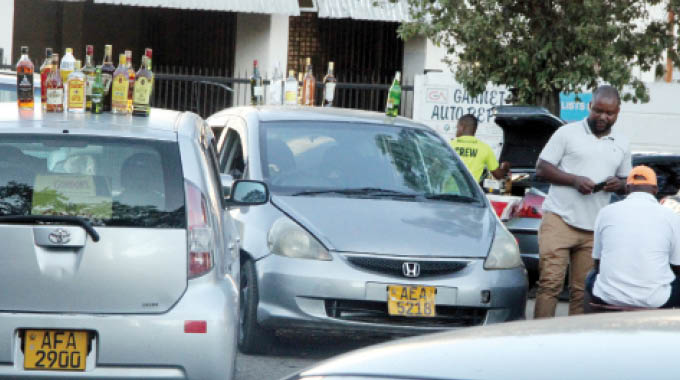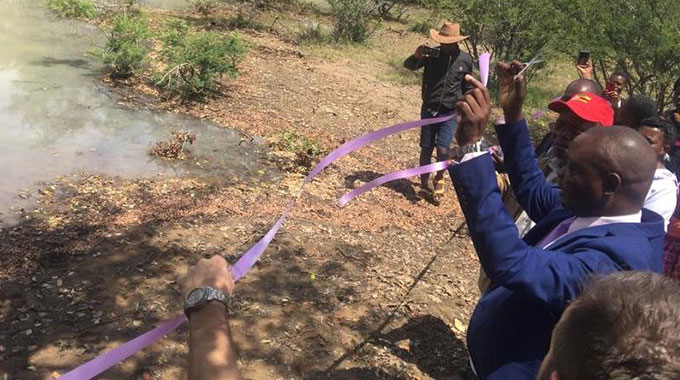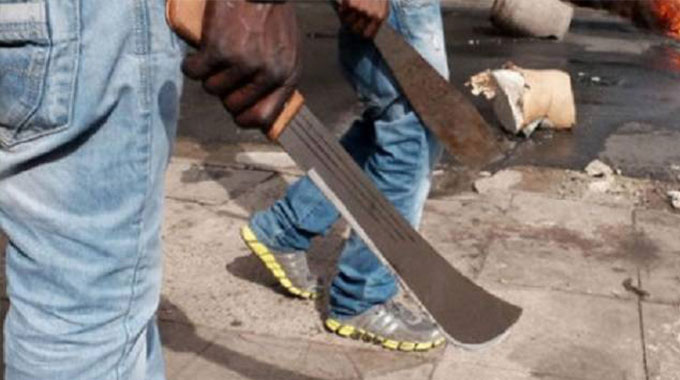Fake liquor drowns legitimate businesses

Bongani Ndlovu and Pride Mahlangu, Chronicle Reporters
DAILY, Zimbabweans are imbibing gallons of alcohol in the form of spirits bought from illegal dealers and most, if not all, do not know whether these are the real deal or fake.
Does anyone know how fake whisky, gin or brandy and vodka tastes like? Do they know the difference between the two (fake and real)?
Some years ago in Namibia, contraband alcohol worth N$20 million was seized by Namibian customs officials at Walvis Bay and destroyed at the harbour town’s landfill.
There were 95 000 bottles of counterfeit Johnny Walker Red and Black Label and Smirnoff Vodka, which according to The Namibian was on its way to Zimbabwe.
Studies have shown that fake alcohol can cause impotence in men.
According to Statista.com, consumption of alcohol per capita in Africa in 2019, by country Nigeria ranks first guzzling 11,34 litres of alcohol per capita, Kingdom of eSwatini second, South Africa third, Lesotho fourth and Zimbabwe fifth consuming 4.8 litres per capita.
By virtue of the high ranking, fifth out of 54 countries, Zimbabwe is a lucrative market for those who want to sell alcohol.
This has seen the rise of people peddling liquor illegally out of the boot of their cars, street corners and alleyways in the city. Established shops are losing the market share to street vendors who charge significantly less for alcohol, specially whiskeys, gin, vodka and brandy.
The prohibitive price is the paramount reason for some not buying these and this has been fertile ground for the sprouting of vendors and friends who have ventured into selling alcohol, illegally.
All these people are operating illegally as they do not possess a liquor licence and the illicitness is brazen, they sell these products from the boots of their cars and from street corners.
Unlike registered shops that do not sell after 8PM and are bound by law not to sell to minors, Illegal liquor vendors operate around the clock and even serve children.
The traders have now changed tact as they no longer put whiskey bottles on vehicle roof tops but trade within cars on strategic pavements with high activity such as Bootleggers, while some have connived with hair saloon operators.
Places like Bootleggers (George Silundika between 10th and 11th avenue), Wateringhole (George Silundika between 8th and 9th Avenue), the market along fifth avenue, at Unity Village, behind Gain Cash and Carry (6th avenue and Jason Moyo) have become known spots where people can buy their alcohol.
One dealer who spoke on condition of anonymity said they were getting their orders from wholesalers in South Africa, where they are offered a discount for buying in bulk and use Omalayitsha to transport the consignment.
There is no way to verify the real source of the liquor.
The dealer said some of their stuff was ordered at local supermarkets using electronic money only to be sold outside in foreign currency or cash.
Some of the brands seen on the streets include; Vat 69, Best, Gordons London Dry Gin and Viceroy. The aforementioned brands were such as 8PM whisky sold for R100 or US$7, while the special ones are sold at US$10, Grants R150 and Jameson Irish whisky starts from US$15.
In the formal shops and supermarkets 8PM goes for ZWL$199 (about R98), Jameson Irish whisky $815.75 (R400), Gordons London Dry Gin $445, Viceroy brandy $215 and Best at $345.
This illicit trade is hurting local businesses as African Distillers (Afdis) is feeling the pinch of fake and imported spirit products. The company posted a 35 percent decline in total volumes for the half year to December 31, 2019 compared to same period in the prior year, as consumer demand wanes.
“Performance of the spirit segment was negatively impacted by the prevalence of counterfeits and illicit alcoholic beverages.
“Consumer trends have shown a shift from premium and mainstream segments to value products in reaction to the erosion of disposable incomes,” said Afdis chairman Mr Pearson Gowero in a statement accompanying the financial report for the six months period.
The company saw its profit for the period drop by 71 percent to $10 million from $37 million that was achieved during the same comparable prior year period.
Buying from the boots of cars or vendors exposes people to bootleg or counterfeit whisky.
Johnnie Walker Black and Red Label are globally the most bootlegged whiskys because they sell fast.
In the country this has become one of the most lucrative businesses.
However, the only way to know that the whiskey or spirit is fake is through after effects of drinking it.
“In drinking my favourite whisky, I won’t be able to taste whether I’m drinking fake alcohol or not. It’s because I use mixers like tonic or lemonade. But I’ll know in the morning when I wake up with a splitting headache. Yesterday, I bought a Red Label from these guys, I still have a headache and my legs are wobbly,” said a Bulawayo businessman who declined to be named.
One Obey Moyo an accountant said drinking whisky was an acquired taste, hence he could differentiate.
“Unless you’re a whiskey connoisseur you won’t know the difference. Drinking that over the years one gets an acquired taste for it. For me I know immediately that the whiskey I like, Johnnie Walker Black or Jameson is fake when it touches my tongue, it tastes bitter and has this methylated spirit like smell,” said Moyo.
He also believes that its hard to make a good fake whiskey, but the formula is easier for liquor like Gin, Vodka and Brandy.
Moyo said he takes his whisky on the rocks (with two cubes of ice) and does not want to put mixers as it kills the smoky, caramel, sweet vanilla and zesty flavour of Johnnie Walker Black.
Another drinker outside Watering Hole in Bulawayo who only identified himself as Phiri said he has no clue the alcohol he buys off the streets is real or fake.
“Come to think of it, I don’t know. I just drink. I buy from the people who sell in cars some gin or sometimes some whiskey. I buy the mixers and then drink. I just trust these guys who sell us the alcohol. They say it comes from South Africa,” said Phiri.











Comments